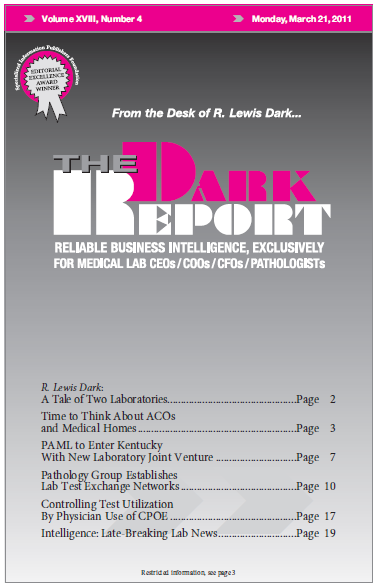CEO SUMMARY: In less than nine months—on January 1, 2012—the new health reform legislation mandates that Medicare commence value-based purchasing. Medicare must also begin contracting with accountable care organizations (ACO). Experts say these two developments will initiate a cycle of broad change to the nation’s healthcare system. At this year’s Executive War College, a special …
Time to Think About ACOs And Medical Homes Read More »
To access this post, you must purchase The Dark Report.


